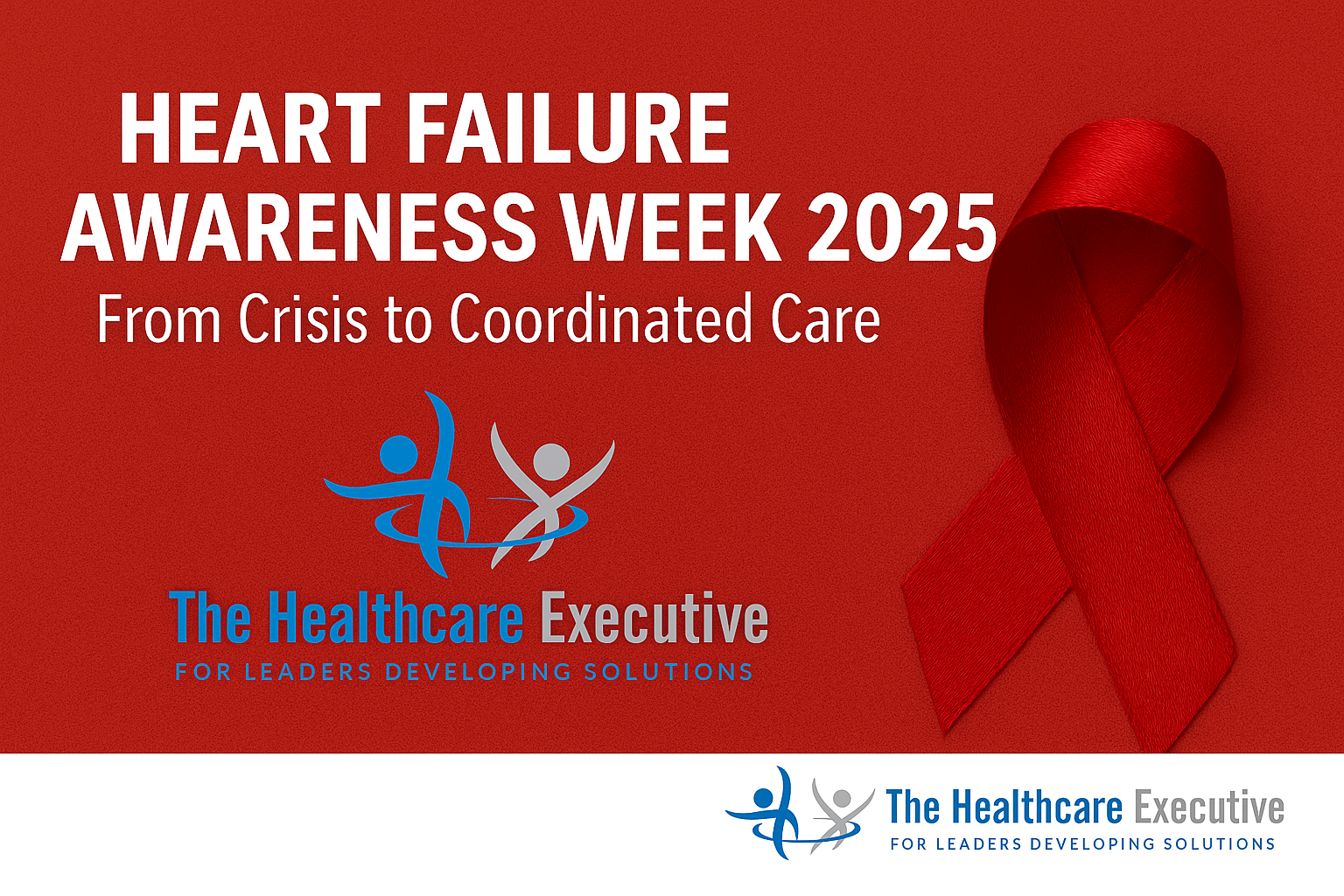Heart Failure Awareness Week 2025: From Crisis to Coordinated Care

- Posted by Greg Wahlstrom, MBA, HCM
- Posted in Health Observance Calendar
Empowering Healthcare Executives to Redesign the Continuum of Heart Failure Management
Published: February 11, 2025
Heart Failure Awareness Week 2025, observed from February 11–17, shines a national spotlight on a chronic condition that affects over 6 million Americans. This observance presents a critical opportunity for healthcare executives to align clinical protocols with long-term strategic planning. Heart failure is not just a cardiac issue—it’s a systemic challenge that demands interdisciplinary leadership, population health focus, and infrastructure redesign. Executives must evaluate readmission metrics, advance care planning policies, and technology adoption to scale solutions effectively. Institutions like Cleveland Clinic have pioneered heart failure clinics that integrate telehealth, pharmacy support, and patient navigation. Leaders must transition from reactive treatment to proactive disease management. Health systems that invest in longitudinal care models can reverse crisis cycles and drive meaningful outcomes.
At the center of heart failure reform is the imperative to build coordinated care pathways that include primary care, cardiology, nutrition, behavioral health, and social support. Executives can champion multi-disciplinary heart teams that use real-time data to track decompensation trends and personalize interventions. Collaborative rounding models and transitional care strategies must be expanded to bridge gaps between inpatient and outpatient settings. Partnerships with community-based organizations, especially those addressing food insecurity and transportation barriers, are essential. Standardized care bundles and remote monitoring tools are now foundational—not optional—in modern heart failure programs. Investment in AI-driven risk stratification can improve clinical precision and resource allocation. Sustainable heart failure leadership starts with designing for continuity, not crisis.
Health disparities in heart failure remain a defining issue for executive leadership in 2025. Black and Hispanic patients are more likely to be hospitalized for heart failure and less likely to receive guideline-directed medical therapy. Healthcare executives must audit their outcomes data by race, gender, geography, and income to address structural inequities. Equity-focused strategies include culturally competent education, language access programs, and diversification of the clinical workforce. Tools like the CardioSmart Patient Hub provide accessible resources tailored to diverse populations. System-level commitment to heart failure equity includes value-based contracts that reward performance in underserved populations. Executive accountability in this area is not optional—it is core to quality, compliance, and mission alignment.
Technology is rapidly reshaping how heart failure is diagnosed, monitored, and managed. Implantable hemodynamic monitoring, AI-supported diagnostic algorithms, and app-based medication reminders are transforming the field. Executives must evaluate digital health partnerships that integrate with existing EHR systems and maintain HIPAA-compliant standards. Strategic investment in home-based cardiac care models, including nurse navigators and paramedic outreach, can prevent hospitalizations and enhance patient trust. Healthcare leaders must also support research and clinical trials that explore new pharmacologic and device-based interventions. Systems that adopt a culture of evidence-based experimentation gain strategic advantages in cardiology and chronic disease management. Innovation in heart failure care requires governance structures that balance risk, return, and resilience.
Now is the time for healthcare executives to lead transformational heart failure strategies that center on prevention, personalization, and partnership. Explore how your leadership team can realign resources, modernize clinical operations, and expand access for patients living with heart failure. This observance week is more than a calendar event—it’s a call to restructure systems of care. Our latest post highlights actionable insights that bridge clinical innovation and organizational strategy. With scalable interventions, health equity initiatives, and strategic foresight, heart failure care can be reimagined. Lead the shift from episodic crisis to sustainable cardiac care. Your leadership matters more than ever.
Discover More
For strategies on advancing chronic disease management and care redesign, read our article on The $5 Billion Question: Can Hospital-at-Home Really Scale?
Internal Links
- The $5 Billion Question: Can Hospital-at-Home Really Scale?
- Building Resilient Healthcare Workforces



